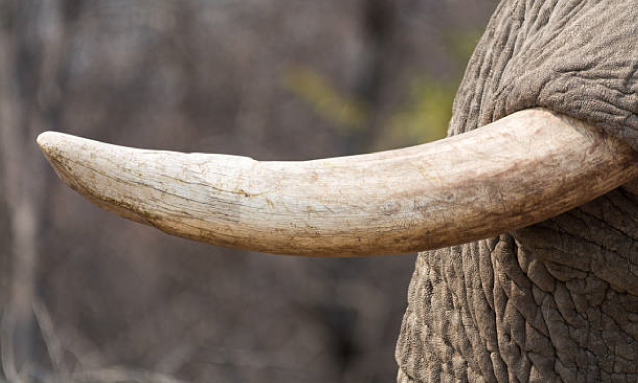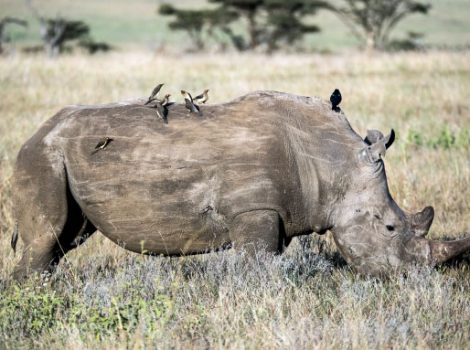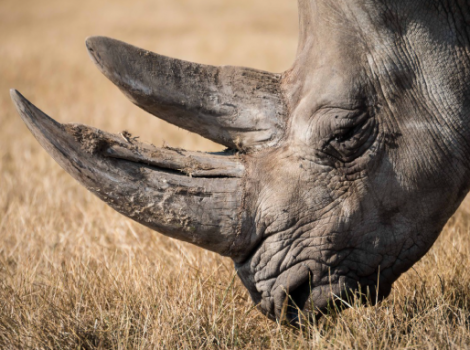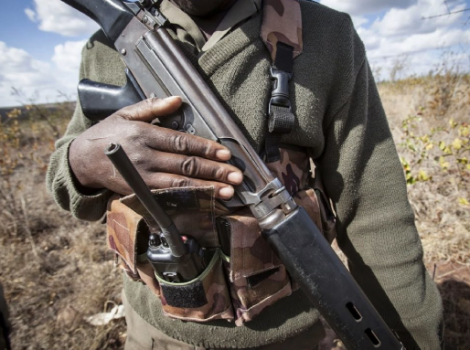
Botswana made its case at an international conference held in Zimbabwe’s Hangwe National Park for the development of a policy formulated to ensure that southern African countries are allowed to engage in the legal trade of ivory.
The first Elephant Summit opened in Zimbabwe on May 23. The conference began with deliberations aimed at lobbying for the support of the international community to enable the sale of ivory for economic gain for countries and also reduce the accumulating ivory stockpiles. The conference is attended by 16 countries, as well as China and Japan. Zimbabwe has threatened to leave CITES if legal ivory sales are not allowed, and it is believed that other southern African countries, including Botswana, would follow suit.
Zimbabwe, which is part of the Kavango Zambezi (KAZA) Transfrontier Conservation Area, of which Botswana is a member, has argued that its elephant population is growing at a rate of 5-8%, which is not sustainable. Authorities added that proceeds from the sale would help manage the rapid population growth, which, if left unchecked, could reach “dangerous proportions”. A statement from 50 wildlife and animal rights organisations, released ahead of the conference on Monday, insists that opening up the ivory trade would encourage poaching and perpetuate the idea that “elephants are mere commodities and that the ivory trade could resume, which would trigger a sharp escalation in poaching.
CITES banned the ivory trade in 1989, in an effort to combat poaching. Opposition to the conference comes mainly from East and West African countries – they are part of the African Elephant Coalition, which argues that opening up legal elephant trade ivory would encourage and increase poaching.
Botswana also has a strong voice, given that it is home to the largest population of elephants in the world, around 130,000. Botswana and Zimbabwe are home to 50% of the world’s elephant population.
Speaking to today.postuszero.com on May 25 of the conference, the director of Botswana’s Department of Wildlife and National Parks, Kabelo Senyatso, noted that Botswana has a tough stance on ivory sales.
“We stand in solidarity with SADC Member States who hold stockpiles of ivory that do not benefit us. I must stress that Botswana has no intention of burning them; we prefer the opening of legal trade channels,” he said.
He explained that ivory from the special elephant quota, for example, is currently in safekeeping as the country continues its lobbying campaign to open up the ivory trade. He said Botswana had established the Conservation Trust Fund, which he hoped would also benefit from proceeds from legal ivory sales.
The Conservation Trust Fund has been set up to benefit communities across elephant ranges by providing grants of up to one million Pula (£66,000) towards initiatives that strengthen their livelihoods and, secondly, to support initiatives focused on elephant conservation. The Conservation Trust Fund was created from the proceeds of the one-time sale of ivory in 1999.
Senyatso insisted that there is a market to sell stockpiled ivory.
“The fact that there is a huge illegal ivory trade market is an indicator that there is a huge lucrative market. We want the sale of ivory to be legal and regulated.
Proceeds from these sales would greatly benefit the Government and help fund initiatives to improve the livelihoods of the people of Botswana.”
Source: This article was reproduced here as part of the African Conservation Journalism programme, funded in Angola, Botswana, Mozambique and Zimbabwe by USAID’s VukaNow: Activity. Implemented by the international conservation organisation Space for Giants, it aims to expand the reach of conservation and environmental journalism in Africa and bring more African voices into the international conservation debate. Read the original story here.



